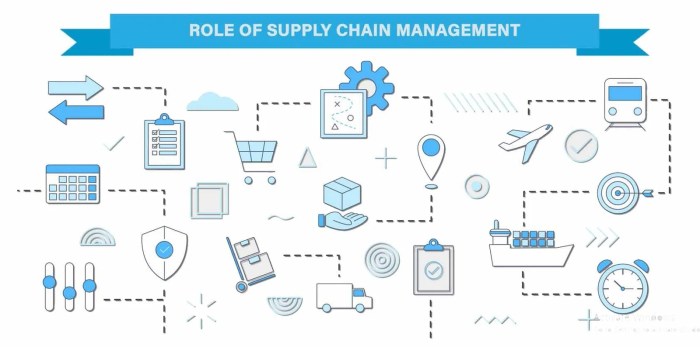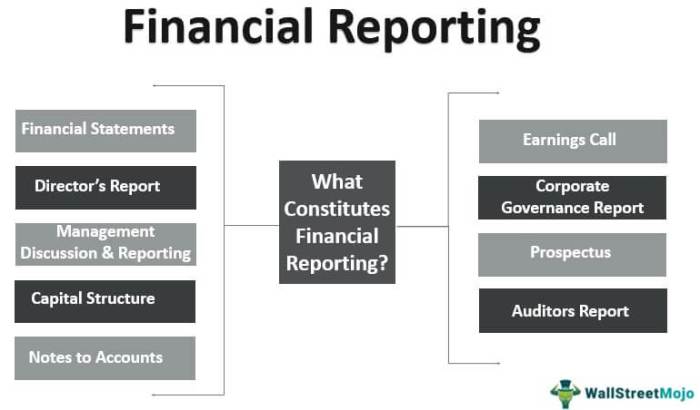How Financial Statement Manipulation Impacts Global Market Trust is a critical issue impacting global financial stability. The deliberate misrepresentation of financial data erodes investor confidence, triggers market volatility, and undermines the integrity of international trade. This exploration delves into the methods used, the motivations behind them, and the far-reaching consequences for businesses, investors, and the global economy. We will examine the roles of regulatory bodies and auditing practices in mitigating this risk, and explore potential solutions for enhancing transparency and accountability in financial reporting.
From Enron’s collapse to more recent scandals, the consequences of financial statement manipulation are devastating. The manipulation itself can take many forms, from outright fraud to more subtle accounting irregularities. These actions not only impact the companies directly involved but create a ripple effect across entire markets and economies, influencing investor behavior, international trade, and overall economic growth. Understanding these intricate dynamics is crucial for building a more robust and trustworthy global financial system.
Defining Financial Statement Manipulation
Financial statement manipulation refers to the intentional misrepresentation of a company’s financial performance or position in its published financial statements. This deceptive practice undermines the integrity of financial reporting and erodes trust in capital markets globally. It can involve a range of actions, from subtle omissions to blatant falsification of data, all designed to present a more favorable picture than reality. The consequences can be severe, impacting investors, creditors, and the overall economic stability.
Financial statement manipulation is achieved through various methods, each designed to distort the financial picture presented to stakeholders. These methods often require a degree of sophistication and understanding of accounting principles to effectively conceal the manipulation.
Methods of Financial Statement Manipulation
The following table Artikels several common methods used to manipulate financial statements, their impact, and potential detection methods.
| Method | Description | Impact | Detection Methods |
|---|---|---|---|
| Revenue Recognition Manipulation | Recording revenue prematurely (before it’s earned) or recording fictitious revenue. This might involve recognizing revenue from future periods or failing to properly account for returns or allowances. | Inflates revenue and profits, creating a false impression of strong financial performance. Can lead to overvaluation of the company. | Analyzing revenue trends, comparing revenue to industry benchmarks, examining sales contracts and supporting documentation, scrutinizing the timing of revenue recognition relative to delivery or performance obligations. |
| Expense Recognition Manipulation | Delaying the recognition of expenses or capitalizing expenses that should be expensed. This can involve classifying expenses as assets or delaying the recording of expenses until a later period. | Understates expenses, inflating profits and potentially understating liabilities. | Analyzing expense trends, comparing expenses to industry benchmarks, reviewing accruals and deferrals, examining the capitalization of expenses. |
| Asset Valuation Manipulation | Overstating the value of assets, such as inventory or property, plant, and equipment (PP&E). This could involve using inappropriate valuation methods or failing to account for impairment losses. | Inflates assets and equity, potentially masking underlying financial weaknesses. | Comparing asset valuations to market values, reviewing appraisal reports, examining impairment tests, and investigating the methods used for valuation. |
| Liability Understatement | Understating liabilities, such as accounts payable, loans, or contingent liabilities. This can involve failing to record liabilities or improperly classifying them. | Inflates equity and improves financial ratios, potentially masking financial risks. | Reconciling accounts payable, reviewing loan agreements, analyzing contingent liabilities, and examining the completeness of liability disclosures. |
| Improper Accounting for Off-Balance Sheet Financing | Structuring transactions to keep debt or other obligations off the balance sheet, creating a misleading picture of the company’s financial leverage. | Understates liabilities and debt, creating a false impression of financial strength. | Thoroughly examining the footnotes to the financial statements, reviewing related-party transactions, and investigating any special purpose entities (SPEs) used by the company. |
Motivations Behind Financial Statement Manipulation, How Financial Statement Manipulation Impacts Global Market Trust
Individuals and corporations may engage in financial statement manipulation for a variety of reasons. Understanding these motivations is crucial to developing effective preventative measures.
Individual incentives often stem from personal gain, such as increased compensation based on performance metrics, stock options, or bonuses tied to reported financial results. Pressure to meet earnings targets or avoid negative consequences can also drive individuals to manipulate financial data. For example, a CFO might manipulate earnings to avoid job loss or secure a promotion.
Corporate incentives are often related to maintaining access to capital markets, attracting investors, securing favorable loan terms, or avoiding penalties for non-compliance with regulations. Companies might manipulate financial statements to meet debt covenants, enhance their stock price, or prevent a downgrade in credit rating. For example, a company facing financial distress might overstate its assets to secure a crucial loan.
Legal and Ethical Implications of Financial Statement Manipulation
The legal and ethical implications of financial statement manipulation are significant and vary across jurisdictions. Generally, it is a serious offense that can lead to substantial fines, imprisonment, and reputational damage for both individuals and corporations. Legal frameworks, such as the Sarbanes-Oxley Act in the United States and similar regulations globally, aim to deter and punish such behavior. Ethical considerations involve a breach of trust with stakeholders and a violation of professional accounting standards, leading to a loss of confidence in the integrity of financial markets. International organizations like the International Accounting Standards Board (IASB) play a crucial role in establishing global accounting standards and promoting ethical conduct. The consequences extend beyond legal penalties to encompass damage to a company’s reputation, loss of investor confidence, and potential bankruptcy.
Impact on Investor Confidence and Market Volatility

Manipulated financial statements severely undermine the foundation of trust upon which healthy capital markets operate. When investors believe a company’s reported financial health is inaccurate or deliberately misleading, confidence erodes rapidly, leading to significant market instability. This lack of trust can trigger a cascade of negative consequences, impacting not only the specific company involved but also broader market sentiment and global economic stability.
The erosion of investor trust in publicly traded companies due to manipulated financial statements is a multifaceted problem. It stems from the inherent reliance investors place on the accuracy and transparency of financial reporting. When this trust is betrayed, the consequences can be devastating, leading to significant financial losses for investors and contributing to broader market instability. This loss of faith can be long-lasting, impacting a company’s ability to attract future investment and hindering its overall growth prospects.
Major Corporate Scandals Resulting from Financial Statement Manipulation
Several high-profile corporate scandals vividly illustrate the severe consequences of manipulating financial statements. Enron’s collapse in 2001, for instance, resulted from years of accounting fraud that masked massive debt and inflated profits. Similarly, WorldCom’s accounting scandal, involving the fraudulent capitalization of expenses, led to the company’s bankruptcy and billions of dollars in losses for investors. These cases, among others like Bernie Madoff’s Ponzi scheme, exposed the devastating impact of fraudulent financial reporting on investor confidence and market stability. These events serve as stark reminders of the importance of accurate and transparent financial reporting.
Short-Term and Long-Term Effects on Stock Prices and Market Indices
In the short term, the revelation of financial statement manipulation typically causes a sharp and immediate decline in a company’s stock price. Investors react swiftly to news of fraud, selling their shares to minimize potential losses. This sell-off can trigger a wider market downturn, especially if the affected company is a major player in a particular sector or the overall market. The extent of the short-term impact depends on several factors, including the scale of the manipulation, the company’s size and prominence, and the overall market sentiment.
The long-term effects can be even more significant and far-reaching. Beyond the immediate stock price drop, a company implicated in financial statement manipulation may face substantial legal and regulatory penalties, difficulty securing future financing, and damage to its reputation. This can lead to a prolonged period of underperformance, even potential bankruptcy, significantly impacting shareholder value and eroding investor confidence in the company and potentially the broader market. The long-term effects often extend beyond the immediate aftermath, creating a lingering shadow of distrust that can be difficult to overcome.
Hypothetical Scenario: Global Ripple Effect of Financial Statement Manipulation
Imagine a hypothetical scenario where a large multinational corporation, a key player in the global technology sector, is discovered to have systematically overstated its revenue and profits for several years. The revelation triggers an immediate and significant drop in the company’s stock price, wiping out billions in market capitalization. The news rapidly spreads globally, impacting investor sentiment not only in the technology sector but across various markets.
This initial shockwave triggers a chain reaction. Other companies in the same sector face increased scrutiny, leading to sell-offs as investors reassess their portfolios. Market indices experience significant volatility, reflecting the broader loss of confidence. Financial institutions that had lent money to the manipulated company face potential losses, potentially impacting their lending practices and creating wider credit market instability. This hypothetical scenario illustrates how a single instance of financial statement manipulation can have a significant and far-reaching ripple effect on the global economy, demonstrating the interconnectedness of financial markets and the importance of maintaining trust and transparency.
Role of Regulatory Bodies and Auditing Practices
Preventing and detecting financial statement manipulation requires a robust framework encompassing strong regulatory oversight and rigorous auditing practices. These mechanisms act as crucial deterrents, aiming to maintain market integrity and protect investor interests. The effectiveness of these safeguards varies across jurisdictions, influenced by factors such as enforcement capabilities, the sophistication of accounting standards, and the overall regulatory environment.
Regulatory bodies play a pivotal role in establishing and enforcing accounting standards, investigating suspected fraud, and imposing penalties on those found guilty of manipulating financial statements. Auditing practices, meanwhile, provide an independent assessment of the accuracy and fairness of financial statements, acting as a crucial check on the information presented by companies. The interplay between these two elements is essential for a healthy and trustworthy financial market.
Regulatory Bodies and their Responsibilities
Regulatory bodies such as the Securities and Exchange Commission (SEC) in the United States and the Financial Conduct Authority (FCA) in the United Kingdom are responsible for overseeing the financial markets within their respective jurisdictions. Their responsibilities include setting accounting standards (often in conjunction with international bodies like the IASB), conducting investigations into suspected financial statement fraud, imposing sanctions on companies and individuals found guilty of wrongdoing, and promoting transparency and disclosure. For example, the SEC’s enforcement actions against companies involved in accounting scandals have served as significant deterrents, while the FCA’s focus on corporate governance and market integrity contributes to a more transparent and reliable financial landscape in the UK. These bodies utilize a range of tools, including inspections, audits, and investigations, to identify and address instances of financial statement manipulation.
Effectiveness of Auditing Standards and Practices
Different auditing standards and practices vary in their effectiveness in mitigating the risk of financial statement manipulation. Internationally, the International Auditing and Assurance Standards Board (IAASB) sets standards that are widely adopted, though the implementation and enforcement can differ significantly across countries. Auditing standards generally emphasize the importance of professional skepticism, independent verification of financial information, and a thorough understanding of the client’s business and internal controls. However, even with robust standards, the effectiveness of audits depends on the competence and independence of auditors, the quality of the audit process, and the willingness of companies to comply with regulations. The Enron and WorldCom scandals, despite seemingly robust auditing practices in place, highlighted the limitations of these mechanisms when faced with sophisticated and deliberate fraud. These events led to significant reforms in auditing standards and regulatory oversight, underscoring the need for continuous improvement and adaptation.
Comparative Analysis of Global Regulatory Frameworks
The effectiveness of regulatory frameworks in combating financial statement fraud varies considerably across global regions. This disparity stems from differences in enforcement capabilities, the level of resources dedicated to oversight, and the overall regulatory environment.
| Region | Strengths | Weaknesses |
|---|---|---|
| North America (US, Canada) | Strong regulatory framework, robust enforcement mechanisms, well-established auditing standards. | Complexity of regulations, potential for regulatory capture, enforcement inconsistencies. |
| Europe (EU) | Harmonized accounting standards (IFRS), increased cross-border cooperation, emphasis on corporate governance. | Variations in enforcement across member states, challenges in addressing cross-border fraud. |
| Asia (e.g., Japan, China) | Growing emphasis on corporate governance and regulatory oversight, increasing international cooperation. | Developing regulatory frameworks in some areas, challenges in enforcement and transparency. |
| Emerging Markets | Rapidly evolving regulatory landscapes in some countries, increased focus on attracting foreign investment. | Limited resources, capacity constraints, enforcement challenges, weak corporate governance in some instances. |
Impact on International Trade and Investment: How Financial Statement Manipulation Impacts Global Market Trust
Financial statement manipulation significantly undermines the global economic system, extending its damaging effects far beyond individual companies. The erosion of trust caused by fraudulent reporting creates ripples throughout international trade and investment flows, impacting both developed and developing nations. This section will explore the intricate ways in which manipulated financial statements disrupt these crucial aspects of the global economy.
The revelation of manipulated financial statements can severely damage a company’s reputation, impacting its ability to secure favorable trade deals and attract foreign direct investment (FDI). International partners become hesitant to engage in business transactions, fearing potential losses or reputational damage by association. Similarly, investors, both domestic and international, will be less likely to allocate capital to companies with a history of accounting irregularities, leading to decreased investment and potentially hindering economic growth. This is particularly true in emerging markets, where robust regulatory frameworks may be less established, and investor confidence is more easily shaken.
Investor Confidence in Emerging Markets and Financial Reporting Irregularities
Emerging markets are particularly vulnerable to the negative consequences of financial statement manipulation. These markets often rely heavily on foreign investment to fuel economic growth, and instances of accounting fraud can significantly deter potential investors. The lack of transparency and robust regulatory oversight in some emerging economies makes it harder to detect and prosecute such activities, further eroding investor confidence. A single high-profile case of financial statement manipulation can create a domino effect, discouraging investment not only in the implicated company but also in the broader market, potentially leading to capital flight and economic instability. This highlights the crucial role of strong regulatory frameworks and transparent accounting practices in attracting and retaining foreign investment in emerging economies.
Governmental Responses to Financial Statement Manipulation by Multinational Corporations
Governments worldwide have responded to instances of financial statement manipulation involving multinational corporations (MNCs) with a range of measures. These responses often involve a combination of regulatory actions, legal proceedings, and diplomatic pressure. For example, following the Enron scandal, the United States implemented the Sarbanes-Oxley Act of 2002, which significantly strengthened corporate governance and accounting regulations. Other countries have followed suit, implementing stricter auditing standards and increasing penalties for accounting fraud. Furthermore, international organizations such as the International Organization of Securities Commissions (IOSCO) play a critical role in coordinating global efforts to combat financial statement manipulation and promote greater transparency and accountability in financial reporting. In cases involving cross-border implications, governments may collaborate on investigations and prosecutions, reflecting a growing international commitment to holding MNCs accountable for their actions. The effectiveness of these responses varies, however, depending on the strength of the legal and regulatory frameworks in place, as well as the political will to enforce them.
Developing Enhanced Transparency and Accountability
Preventing financial statement manipulation requires a multi-faceted approach focused on strengthening corporate governance, improving transparency in financial reporting, and enhancing auditing and regulatory oversight. A robust system of checks and balances is crucial for restoring and maintaining trust in global markets.
Improved corporate governance structures are fundamental to preventing financial statement manipulation. Strong corporate governance fosters a culture of ethical behavior and accountability, minimizing the incentives for fraudulent activities. This includes establishing independent audit committees, implementing robust internal controls, and ensuring the board of directors possesses the necessary expertise and independence to effectively oversee management. A clear separation of duties, coupled with regular internal audits, can significantly reduce opportunities for manipulation.
Strengthening Corporate Governance Structures
Effective corporate governance is the cornerstone of preventing financial statement manipulation. This involves several key components: A truly independent board of directors, free from undue influence from management, is essential for objective oversight. Regular and rigorous internal audits, conducted by independent internal audit functions, are crucial for early detection of irregularities. A strong whistleblower protection program encourages employees to report suspected misconduct without fear of retaliation. Finally, clear and well-defined roles and responsibilities, with a strong emphasis on accountability, prevent conflicts of interest and encourage ethical conduct. The Sarbanes-Oxley Act of 2002 (SOX) in the United States, for example, significantly strengthened corporate governance requirements in the wake of major accounting scandals, demonstrating the effectiveness of legislative intervention.
Best Practices for Enhancing Transparency in Financial Reporting
Enhancing transparency in financial reporting involves several key best practices. The adoption of International Financial Reporting Standards (IFRS) promotes consistency and comparability across different jurisdictions, making it easier for investors to assess financial information accurately. Detailed disclosures beyond the basic financial statements, including supplementary information on key performance indicators (KPIs) and risk factors, provide a more complete picture of a company’s financial health. Utilizing technology, such as XBRL (Extensible Business Reporting Language), allows for standardized data reporting, facilitating easier analysis and comparison by investors and regulators. Real-time data reporting and increased use of data analytics can aid in identifying potential anomalies or inconsistencies in financial data, alerting stakeholders to potential manipulation.
Recommendations for Strengthening Auditing Procedures and Regulatory Oversight
Strengthening auditing procedures and regulatory oversight is crucial for deterring financial statement manipulation. Increased auditor independence, including stricter rules on auditor rotation and limitations on non-audit services provided by auditors to their audit clients, is essential. Enhanced auditor liability for failing to detect fraud would increase the incentive for thorough audits. Regulatory bodies need increased resources and authority to conduct thorough investigations and impose meaningful penalties for financial statement manipulation. International cooperation among regulatory bodies is crucial to address cross-border financial fraud. Finally, proactive surveillance and data analytics techniques can aid regulators in identifying potentially suspicious activities early on. The increased scrutiny and penalties imposed following the 2008 financial crisis demonstrate the potential impact of stronger regulatory oversight.
The Future of Financial Reporting and Global Trust
The integrity of financial reporting is paramount to maintaining global market stability and fostering investor confidence. The increasing complexity of global finance, coupled with technological advancements, presents both challenges and opportunities in ensuring accurate and reliable financial statements. This section explores how emerging technologies and evolving analytical tools are shaping the future of financial reporting and its impact on global trust.
Implementing New Technologies to Enhance Financial Reporting
The adoption of new technologies holds significant potential for improving the accuracy and reliability of financial reporting. Blockchain technology, for example, offers a secure and transparent platform for recording financial transactions. Its immutable ledger system could significantly reduce the risk of manipulation by providing an auditable trail of all financial activities. This enhanced transparency would bolster investor confidence and facilitate more efficient audits. However, challenges remain, including the scalability of blockchain for handling large volumes of financial data, the need for standardized implementation across different systems, and the potential for sophisticated attacks to exploit vulnerabilities within the blockchain itself. Successfully integrating blockchain requires careful consideration of these complexities and collaborative efforts from stakeholders across the financial industry.
The Impact of Artificial Intelligence and Machine Learning on Fraud Detection
Artificial intelligence (AI) and machine learning (ML) are rapidly transforming the landscape of fraud detection in financial reporting. These technologies can analyze vast datasets, identifying patterns and anomalies indicative of fraudulent activities that might be missed by human auditors. ML algorithms can be trained to recognize subtle irregularities in financial statements, such as unusual fluctuations in revenue or expense accounts, or discrepancies between reported figures and industry benchmarks. Early detection systems, powered by AI and ML, can help mitigate the impact of financial statement manipulation by flagging suspicious activities for further investigation. However, the effectiveness of AI and ML depends heavily on the quality and quantity of the data used for training the algorithms. Furthermore, sophisticated fraudsters may adapt their techniques to evade detection, necessitating ongoing refinement and adaptation of these technologies.
Long-Term Implications of Widespread Financial Statement Manipulation
Widespread financial statement manipulation poses a significant threat to the global economy and the future of financial markets. A loss of trust in financial reporting could lead to reduced investment, hindering economic growth and potentially triggering financial crises. Investors might become more risk-averse, demanding higher returns to compensate for the increased uncertainty. This could stifle innovation and entrepreneurship, as businesses struggle to access capital. The long-term consequences could include decreased market liquidity, increased volatility, and a shift towards less transparent financial instruments. The 2008 financial crisis serves as a stark reminder of the devastating impact that a lack of trust in financial institutions can have on the global economy. Proactive measures to enhance transparency, accountability, and regulatory oversight are crucial to mitigate these risks and safeguard the integrity of financial markets.
Final Thoughts
Ultimately, restoring and maintaining global market trust requires a multi-pronged approach. Strengthening regulatory frameworks, enhancing auditing procedures, and promoting greater corporate governance transparency are vital steps. The adoption of new technologies, such as blockchain and AI, offers promising avenues for improving the accuracy and reliability of financial reporting, thus deterring manipulation and bolstering investor confidence. The future of financial markets hinges on a collective commitment to ethical practices and robust accountability mechanisms to ensure a fair and stable global financial landscape.
FAQ
What are some common methods used to manipulate financial statements?
Common methods include revenue recognition manipulation, asset overvaluation, liability undervaluation, and expense deferral. These techniques can be quite sophisticated and difficult to detect.
How can investors protect themselves from the impact of financial statement manipulation?
Investors should diversify their portfolios, conduct thorough due diligence on companies, and stay informed about regulatory actions and corporate news. Seeking advice from qualified financial professionals is also highly recommended.
What role does whistleblowing play in uncovering financial statement manipulation?
Whistleblowing plays a crucial role. Internal and external whistleblowers provide vital information that can lead to investigations and prosecutions, contributing significantly to the detection and prevention of financial statement manipulation.
Obtain direct knowledge about the efficiency of Etsy Seller Accounting and Bookkeeping Tips through case studies.









